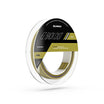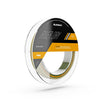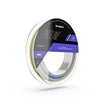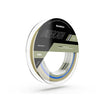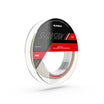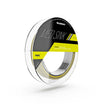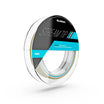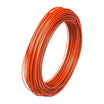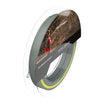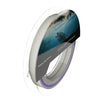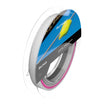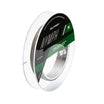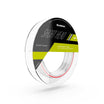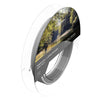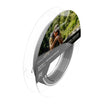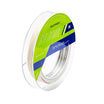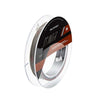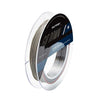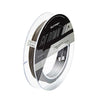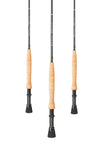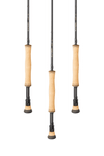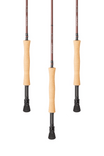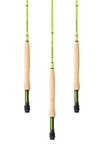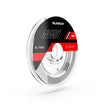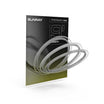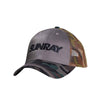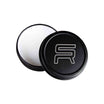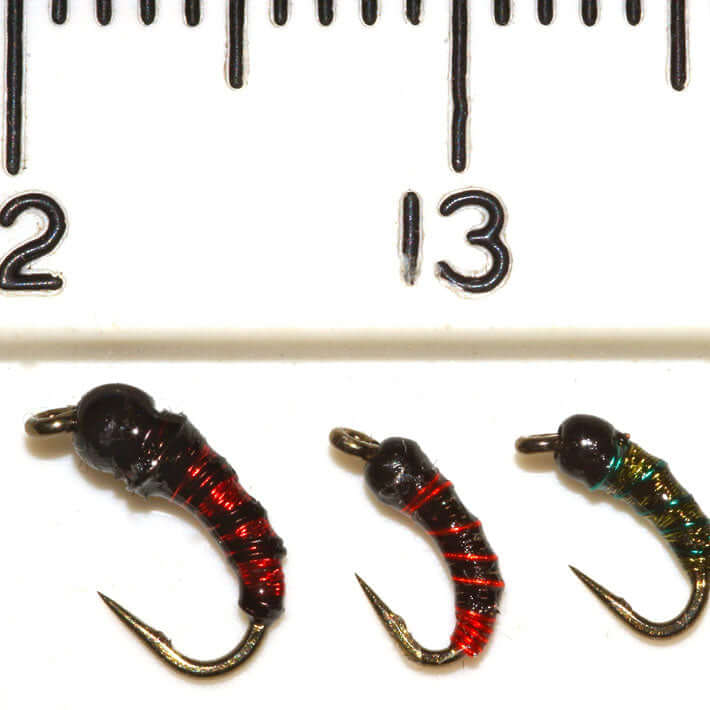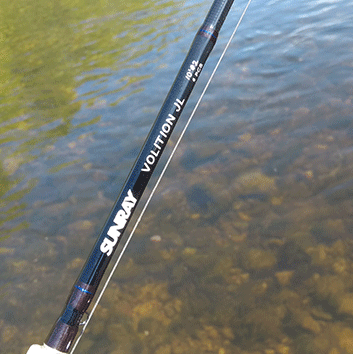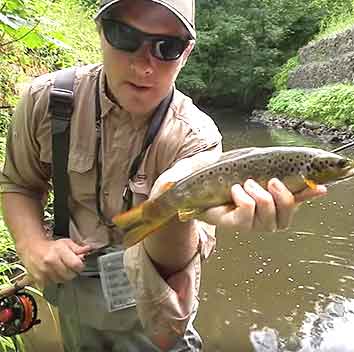Whilst I much prefer the visual appeal of dry fly, it is sometimes necessary to get a fly down deep, particularly when winter grayling fishing or early season trouting. Also when sight fishing, Euro Nymphing or fishing the Duo with tiny nymphs or buzzers it can be important to have a fast sinking fly that gets down to depth quickly. This is where Heavy Metal Nymphs & Buzzers come into play. Let me give you four examples of where they have been vital for me to achieve success.
The first was whilst fishing for a shoal of large grayling on the gin-clear, Oxfolds Beck near Pickering, North Yorkshire (a stream sadly destroyed by pollution). The fish were lined up at the base of a drop-off where a shallow riffle no more than 6” deep plummeted steeply into a hole 3’ deep. The only streamlined, heavy fly that I had in my box was a size 12 red wire & holographic tinsel buzzer with a 3mm tungsten bead-head that I normally use for fishing deep lakes for rainbows. I cast this with a dump cast 1’ above the drop-off, let it sink with the slack tippet & watched the fish. As the line tightened due to the fast surface flow a fish moved briskly to the side & a lift of the rod tip resulted in a satisfying bend in the rod. Over the next half hour several more fish were winkled out of the shoal using this tactic.

1. Oxfolds Beck grayling
The second was in early April when Stuart Crofts joined me on the tiny, overgrown, Thornton Beck in Dalby Forest on the North Yorks. Moors. This Lilliputian stream has some surprisingly deep pools & on the day in question the fish were lying deep & were not prepared to rise to a dry fly. With a typical pool being no more than 12’ to 15’ long & 3’ to 4’ deep a heavy, streamlined fly was required to reach the fish lying next to the riverbed at the heads of the pools. A size 14 nymph tied with a 2.8mm tungsten bead & lead wire body, cock pheasant fiber tail & hare’s ear thorax proved to be perfect for the job & we had a good number of feisty wild brown trout.

2. Stu Crofts fishing Thornton Beck

3. Heavy Metal Nymph
The third case is on my local small still water where near the inlet there is a fast surface flow, but a much slower flow 1’ to 2’ down where the fish hover waiting for delicacies to be brought by the inflow. Tiny, 3 to 5mm long, Buzzer/Chironomid pupae make up the major portion of the resident rainbows’ diet. The fish at the inlet are heavily pressured since they are clearly visible. Stocking is done infrequently & most anglers fish catch & release so the fish are very well educated & will refuse all but a perfect micro-drag-free drift & a tiny fly. The problem is getting a size 24 Buzzer Pupa down through the fast surface water with enough slack to facilitate a few seconds of natural drift. What is required is a dense, streamlined fly presented with a dump cast to provide plenty of slack in the fine tippet. This tactic has accounted for numerous rainbows up to over 7lb & a handful of the rare resident grayling up to over 2lb. I tie my size 20 to 24 Heavy Metal Buzzers with 2mm & 1.5mm black tungsten beads, a body of 0.09mm wire ribbed with 0.18mm wire & coated with UV resin.

4. Rainbow & size 24 Micro Heavy Metal Buzzer 5. Size 20 to 24 Heavy Metal Buzzers
Finally there was a day on the upper River Test in October 2016. There were three nice grayling grubbing in the gravel below a Ranunculus bed. I had to cast only 1’ above the fish (just behind the trailing weed fronds) so I needed a tiny fly that wouldn’t spook the fish when it hit the water but which would sink instantly to just above the river bed. A size 18 Heavy Metal Nymph tied with a 2mm tungsten bead & Bug Bonded wire body plus hen hackle fiber tail did the job admirably.

6. R. Test Grayling

7. The successful fly!
The great thing about most of these patterns is that no thread is involved, just a bead, wrapped wire & maybe a tail with the body coated with UV resin to stop the wire unraveling & reduce the surface area to aid sinking: simple & effective!


